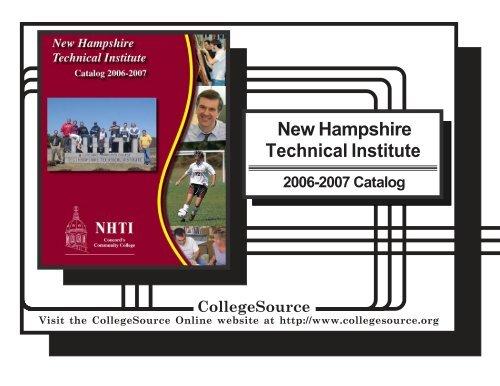Since the end of the last school year, full-time staffing for NHTI’s computer engineering courses has steadily depleted to just one member, bringing the future of the program into question.
The resignation of Animation and Graphic Game Programming Professor Greg Walek and Electronic Engineering Technology Professor Tony Jenney as well as the retirement of former Department Head Frank Polito has left Ken Gitlitz, professor of computer engineering technology, as the lone remaining full-time faculty member.
In a Jan. 19 email sent to the NHTI Industry Advisory Board, Polito explained that the Gitlitz and the existing adjunct professors are not enough to offer the requisite courses for current and future students to fill their accreditation.
“The fall semester starts in seven months and there is no credible plan in place for NHTI to be able to offer the Electronic Engineering Technology courses necessary for the second-year students to complete their degree requirements or to offer the EET courses necessary for a new EET freshman class,” Polito said.
The lack of urgency to fill the positions might be due to the financial difficulty the university has endured with decreasing enrollment during the COVID-19 pandemic, Polito said. He questioned whether NHTI President Gretchen Mullin-Sawicki planned to fill the jobs with part-time adjunct professors instead of full-time faculty.

“Since the president came to NHTI 2.5 years ago, her approach to a full-time faculty retirement or resignation is to not backfill the position with a full-time faculty,” Polito said. “Her stated reason for doing this is to reduce the number of full-time faculty without the need for layoffs.”
In a statement to Monitor, NHTI Public Information Officer Amy Proctor said the school is planning on hiring more full-time employees but is currently committed to working with other community colleges in the state as well as UNH Manchester.
“NHTI is hiring for additional faculty positions in the EET program; in the meantime, and on a temporary basis, in addition to the course offerings here at the college, we’re able to partner with NCC and UNH-Manchester,” Proctor said. “We look forward to staffing the program back up very shortly through our current recruiting efforts. This program is very important to NHTI and we’re happy to be able to address the temporary situation created by retirements through collaboration.”
Ken Thompson, a former graduate and adjunct professor at NHTI, served on the NHTI Industry Advisory Board from 2015 to 2019. He hired multiple former students when he worked at Exacom, a multimedia software development company based in Concord, as well as at his start-up, 3nigmatics, a company that focuses on inoperability between communication networks.
“I hired students in the past. I hired students even for my startup,” Thompson said. “We were interested in seeing the program continue because of the graduates people were hiring.”
NHTI has served as one pipeline for state engineering companies like Exacom for decades, and without these programs, Thompson believes it will be a big loss to the community. He also explained that in his time as an adjunct professor at NHTI, he had various foreign students that benefited from the proficient programs and the lower cost of tuition compared to comparable community colleges. He believes that this potential change could affect them.
Phil Dyer was one of those hires by Thompson at Exacom. He went to NHTI from 2003-2005 and UNH-Manchester from 2005-2007. From his experience, he doesn’t think sending students to different schools would be the most conducive for students’ schedules.
“It would have been hard commuting back and forth,” Dyer said. “You had a mixture of the classes that you were taking that were going towards your major, and (general education) classes, and there wasn’t always a large break in between.”




